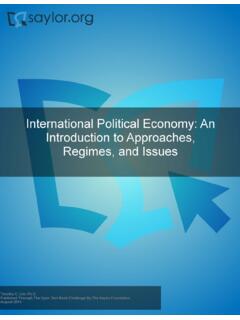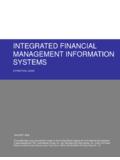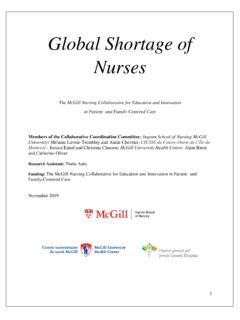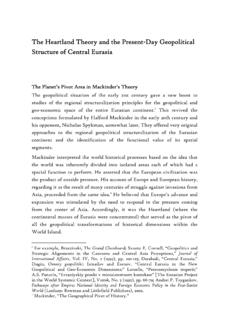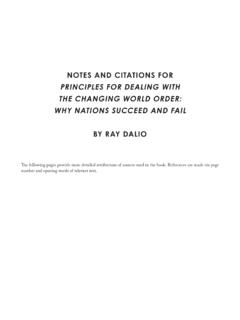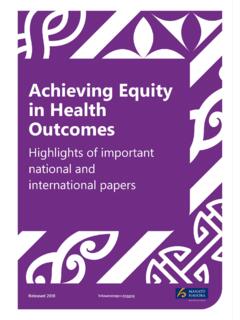Transcription of THE MISEDUCATION OF THE FILIPINO
1 THE MISEDUCATION OF THE FILIPINO . Prof. Renato Constantino, Journal of Contemporary Asia, , (1970). Education is a vital weapon of a people striving for economic emancipation, political independence and cultural renaissance. We are such a people. Philippine education therefore must produce Filipinos who are aware of their country's problems, who understand the basic solution to these problems, and who care enough to have courage to work and sacrifice for their country's salvation. Nationalism in Education In recent years, in various sectors of our society, there have been nationalist stirrings which were crystallized and articulated by the late Claro M.
2 Recto, There were jealous demands for the recognition of Philippine sovereignty on the Bases question. There were appeals for the correction of the iniquitous economic relations between the Philippines and the United States. For a time, FILIPINO businessmen and industrialists rallied around the banner of the FILIPINO FIRST policy, and various scholars and economists proposed economic emancipation as an intermediate goal for the nation. In the field of art, there have been signs of a new appreciation for our own culture. Indeed, there has been much nationalist activity in many areas of endeavor, but we have yet to hear of a well- organized campaign on the part of our educational leaders for nationalism in education.
3 Although most of our educators are engaged in the lively debate on techniques and tools for the improved instructions, not one major educational leader has come out for a truly nationalist education. Of course some pedagogical experts have written on some aspects of nationalism in education. However, no comprehensive educational programme has been advanced as a corollary to the programmes for political and economic emancipation. This is a tragic situation because the nationalist movement is crippled at the outset by a citizenry that is ignorant of our basic ills and is apathetic to our national welfare. New Perspective Some of our economic and political leaders have gained a new perception of our relations with the United States as a result of their second look at Philippine-American relations since the turn of the century.
4 The reaction which has emerged as economic and political nationalism is an attempt on their part to revise the iniquities of the past and to complete the movement started by our revolutionary leaders of 1896. The majority of our educational leaders, however, still continue to trace their direct lineal descent to the first soldier-teachers of the American invasion army. They seem oblivious to the fact that the educational system and philosophy of which they are proud inheritors were valid only within the framework of American colonialism. The educational system introduced by the Americans had to correspond and was designed to correspond to the economic and political reality of American conquest.
5 Capturing Minds The most effective means of subjugating a people is to capture their minds. Military victory does not necessarily signify conquest. As long as feelings of resistance remain iin the hearts of the vanquished, no conqueror is secure. This is best illustrated by the occupation of the Philippines by the Japanese militarists during the Second World War. Despite the terroristic regime imposed by the Japanese warlords, the Filipinos were never conquered. Hatred for the Japanese was engendered by their oppressive techniques which in turn were intensified by the stubborn resistance of the FILIPINO people. Japanese propagandists and Page 1. psychological warfare experts, however, saw the necessity of winning the minds of the people.
6 Had the Japanese stayed longer, FILIPINO children who were being schooled under the auspices of the new dispensation would have grown into strong pillars of the Greater East Asia Co-Prosperity Sphere. Their minds would have been conditioned to suit the policies of the Japanese imperialists. The moulding of men's minds is the best means of conquest. Education, therefore, serves a a weapon in wars of colonial conquest. This singular fact was well appreciated by the American military commander in the Philippines during the FILIPINO -American War. According to the census of 1903: "..General Otis urged and furthered the reopening of schools, himself selecting and ordering the textbooks.
7 Many officers, among them chaplains, were detailed as superintendent of schools, and many enlisted men, as ". The American military authorities had a job to do. They had to employ all means to pacify a people whose hopes for independence were being frustrated by the presence of another conqueror. The primary reason for the rapid intorduction, on a large scale, of the American public school system in the Philippines was the conviction of the military leaders that no measure could so quickly promote the pacification of the islands as education. General Arthur McArthur, in recommending a large appropriation for school purposes, said: "..This appropriation is recommended primarily and exclusively as an adjunct to military operations calculated to pacify the people and to procure and expedite the restoration of tranquility throughout the ".
8 Beginnings of Colonial Education Thus, from its inception, the educational system of the Philippines was a means of pacifying a people who were defending their newly-won freedom from an invader who had posed as an ally. The education of the FILIPINO under American sovereignty was an instrument of colonial policy. The FILIPINO has to be educated as a good colonial. Young minds had to be shaped to conform to American ideas. Indigenous FILIPINO ideals were slowly eroded in order to remove the last vestiges of resistance. Education served to attract the people to the new masters and at the same time to dilute their nationalism which had just succeeded in overthrowing a foreign power.
9 The introduction of the American educational system was a means of defeating a triumphant nationalism. As Charles Burke Elliot said in his book, The Philippines: "..To most Americans it seemed absurd to propose that any other language than English should be used over which their flag floated. But in the schools of India and other British dependencies and colonies and, generally, in all colonies, it was and still is customary to use the vernacular in the elementary schools, and the immediate adoption of English in the Philippine schools subjected America to the charge of forcing the language of the conquerors upon a defenseless people. Of course, such a system of education as the Americans contemplated could be successful only under the direction of American teachers, as the FILIPINO teachers who had been trained in Spanish methods were ignorant of the English Arrangements were promptly made for enlisting a small army of teachers in the United States.
10 At first they came in companies, but soon in battalions. The transport Thomas was fitted up for their accomodations and in July, 1901, it sailed from San Francisco with six hundred teachers -a second army of occupation- surely the most remarkable cargo ever carried to an Oriental ". The American Vice-Governor The importance of education as a colonial tool was never underestimated by the Americans. This Page 2. may be clearly seen in the provision of the Jones Act which granted the Filipinos more autonomy. Although the government services were Filipinized, although the Filipinos were being prepared for self-government, the Department of Education was never entrusted to any FILIPINO .
